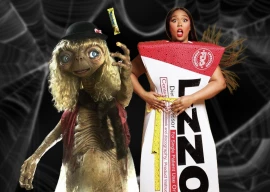
Cardiovascular health

Peanuts are rich in monounsaturated fats, the type of fat abundant in Mediterranean foods. Research published in the Nurses’ Health Study found that diets with an emphasis on peanuts decrease cardiovascular disease risk by an estimated 21 per cent. In addition to their monounsaturated fat content, peanuts feature a number of other nutrients that, in numerous studies, have shown to promote heart health.
Rich in anti-oxidants

New research shows peanuts have an antioxidant quotient that can be compared to that of fruits. Roasted peanuts rival the antioxidant content of blackberries and strawberries and are richer in the substance than apples, carrots and beets. Research conducted by a team of University of Florida scientists, published in the journal Food Chemistry, shows that peanuts contain high concentrations of antioxidant polyphenols, primarily a compound called p-coumaric acid. It also inferred that roasting can boost their overall antioxidant content by as much as 22 per cent.
Reduces risk of stroke

Resveratrol, a flavonoid first studied in red grapes, is also found in peanuts. Resveratrol, being a phytonutrient, has been determined to improve blood flow in the brain by up to 30 per cent, thus greatly reducing the risk of stroke, according to the studies published in the Journal of Agricultural and Food Chemistry. Lead researcher Kwok Tung Lu hypothesised that Resveratrol in peanuts stimulates the production and release of nitric oxide, a molecule made in the lining of blood vessels that signals the surrounding muscle to relax, dilating the blood vessel and increasing blood flow.
Protects against Alzheimer’s

Research published in the Journal of Neurology, Neurosurgery and Psychiatry indicates regular consumption of niacin-rich peanuts provides protection against Alzheimer’s disease and age-related cognitive decline. Researchers from the Chicago Health and Aging Project interviewed over 3,000 Chicago residents aged 65 or older about their diet tested their cognitive abilities over the following six years. Those consuming two tablespoons of peanuts a day were 70 per cent less likely to have developed Alzheimer’s disease.
Lowers risk of weight gain

Although peanuts are known to provide a variety of cardio-protective benefits, many avoid them for fear of weight gain. A study published in the journal Obesity shows such fear is baseless. The study found that participants who ate nuts at least two times per week were 31 per cent less likely to gain weight than those who didn’t. Study authors concluded, “Frequent nut consumption was associated with a reduced risk of weight gain (5kg or more). These results support the recommendation of nut consumption as an important component of a cardio protective diet and also allay fears of possible weight gain.”
Prevents hair loss

Vitamin C present in peanuts along with the good monosaturated fats help in the production of collagen, which keeps the tissues in our hair together. A deficiency in collagen is what results in hair loss. These humble superstars also have l-arginine, a mineral that is used in treating male pattern baldness and omega 3 fatty acids, which strengthens hair follicles and promotes hair growth. Peanuts are loaded with fibre, which helps in flushing out the excess toxins from the body making it great for the skin. Toxins are responsible for breakouts and excess oil on the skin. Additionally, peanuts have Vitamin E, which prevents wrinkles and signs of ageing.
Great for pregnant women

A study conducted by Emory University in Atlanta has found that children whose mothers ate peanuts during pregnancy decreased the risk of allergic diseases, such as asthma in children. Peanuts are a good source of protein and amino acids, which promote the growth of the foetus. The study also found that peanuts fight depression, which is caused by hormonal changes during pregnancy or otherwise. Depression is caused due to lack of serotonin secretion in the brain. Peanuts have tryptophan, which helps release serotonin that fights depression.
Published in The Express Tribune, January 9th, 2015.
Like Life & Style on Facebook, follow @ETLifeandStyle on Twitter for the latest in fashion, gossip and entertainment.
COMMENTS (4)
Comments are moderated and generally will be posted if they are on-topic and not abusive.
For more information, please see our Comments FAQ






1729930993-0/WhatsApp-Image-2024-10-26-at-08-52-06-(2)1729930993-0-270x192.webp)










@$heikh Please note that quoting websites is never a good option. Also, it doesn't refer to the exact content specifically. It is just like saying, "According to Wikipedia, this and that happened or this and that is like bla bla".
@ Hannah And you should always read the entire article carefully before commenting. The sources are clearly mentioned in the very first paragraph of this article.
You should always include the sources for the journal articles you mention...
It is a common misconception that peanuts are a meaningful dietary source of resveratrol. It is primarily concentrated in the pericarp, which is nonedible and usually discarded. Levels are in microgram amounts which is not sufficient to produce physiologic responses. There are plenty of other reasons to eat peanuts, just not for the resveratrol!